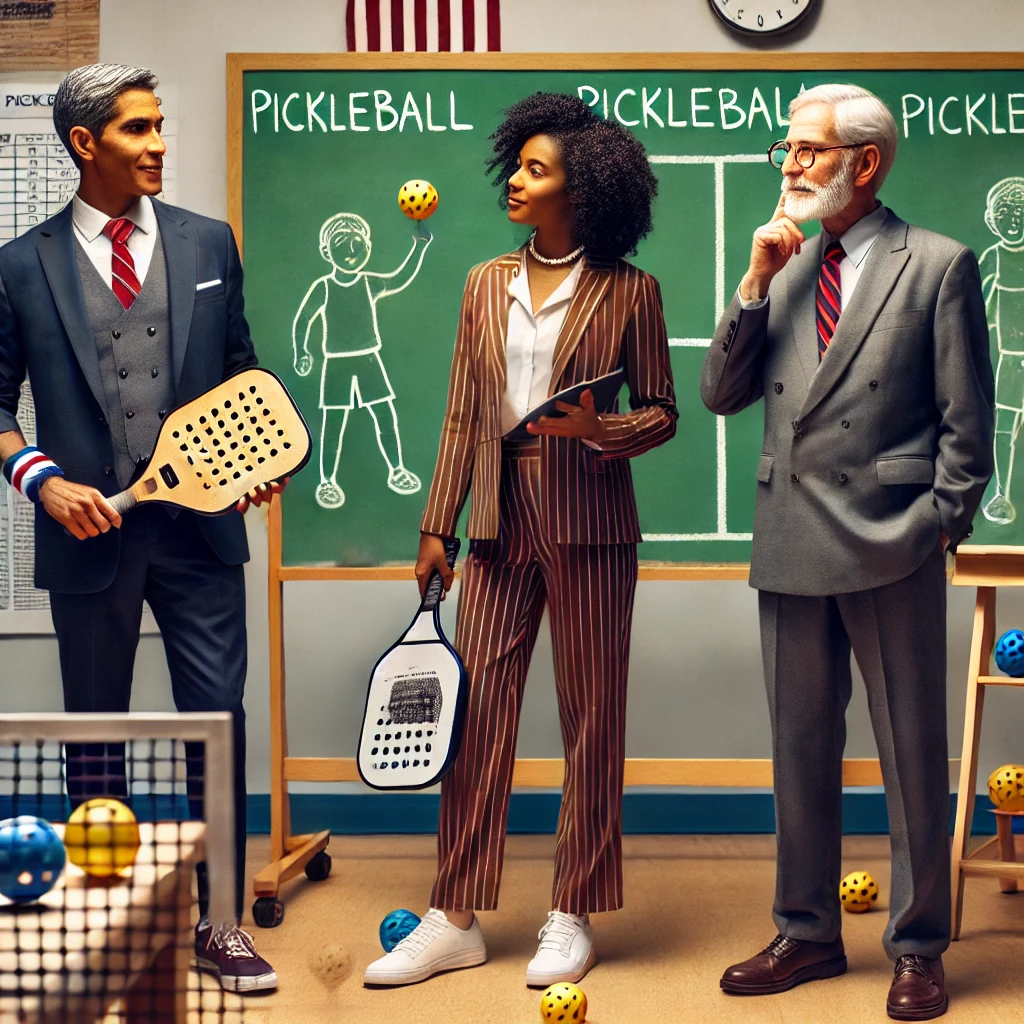
Does Pickleball Hold The Key To Solving One Of The Biggest Challenges Faced By Political Leaders
When most people think about pickleball, they imagine a fun, fast-paced game played on a smaller court. But if you’re a pickleball player, you know there’s much more to the sport than just competition. At its core, pickleball teaches players about fairness, honesty, and respect—values that don’t just belong on the court, but in every aspect of life, including politics.
One of the most powerful lessons from pickleball is the concept of self-regulation. In pickleball, players are responsible for making their own calls. There’s no referee on the court to monitor every shot, so when the ball lands close to the line, it’s up to you to decide: Is it in or is it out? The expectation is that you’ll make the call honestly, even if it means giving the point to your opponent. Integrity, in this case, outweighs any desire to win at all costs.
This simple idea of self-regulation can teach us a lot about how political systems might benefit from similar values. In politics, we often see the opposite behavior—leaders bending the truth, avoiding accountability, and prioritizing personal victories over fairness and transparency. What if our political leaders approached their responsibilities the same way pickleball players approach close calls on the court?
Pickleball’s Leadership Lesson: Winning with Integrity

In pickleball, winning is important, but it’s not everything. The real victory comes from playing the game with integrity, earning the respect of your fellow players, and contributing to the fairness of the match. When players make honest calls, they’re showing that they care about the spirit of the game more than just the score on the board.
Contrast that with what we often see in politics. In many cases, politicians are more focused on personal gain than on serving their constituents with honesty and fairness. They might twist the facts, dodge tough questions, or play to the crowd, all in the pursuit of power. Imagine how different things could be if political leaders were guided by the same principles of self-regulation and integrity that pickleball players follow.
On the pickleball court, trust is everything. Players trust each other to make fair calls, and this trust builds a community of respect. What if we could build the same kind of trust between politicians and the public?
Self-Regulation in Politics: The Change We Need

Self-regulation in pickleball isn’t just about following the rules—it’s about upholding a higher standard of fairness and respect. It’s knowing that your actions on the court reflect your character, and that doing the right thing, even when no one is watching, is more important than winning the point.
In politics, the stakes are much higher than in any pickleball game, but the principle remains the same. What if politicians held themselves accountable the way pickleball players do? What if they made the tough calls, not based on what would get them re-elected, but on what’s right for the people they serve?
We often talk about transparency in politics, but true transparency requires more than just open records or press conferences—it requires honesty in decision-making and a willingness to admit when you’re wrong. Just like on the pickleball court, self-regulation in politics means taking responsibility for your actions and maintaining the public’s trust.
Building Trust: From the Court to Congress

In pickleball, when a player makes an honest call, they’re contributing to a culture of trust. This trust allows the game to flow smoothly and helps players build relationships based on mutual respect. Imagine if our political system worked the same way. If politicians approached their roles with a focus on honesty, integrity, and accountability, they could build the kind of trust that’s desperately needed in today’s political landscape.
The next time you’re on the pickleball court, making a close call, think about the integrity you’re practicing. That same commitment to fairness and honesty could be the key to transforming politics. It’s not just about winning the game—it’s about doing what’s right, both on and off the court.
Applying Pickleball Leadership to Politics
Pickleball leadership is about more than just strategy and skill. It’s about setting an example, earning respect, and holding yourself to a high standard of integrity. These are the qualities that make pickleball players trusted and respected in their community, and they’re the same qualities we should expect from our political leaders.
As pickleball players, we know that integrity is what makes the game worth playing. Now it’s time to apply those lessons beyond the court. If our political leaders could learn to regulate themselves with the same level of honesty and accountability that we practice in pickleball, the impact could be profound. After all, leadership is leadership—whether you’re on the pickleball court or in Congress.
So, the next time you’re out there, playing a tight match, remember: the integrity you practice here could be the change we need out there.
Conclusion: Apply the Lessons of Integrity to Your Leadership Journey
Integrity is at the heart of both pickleball and effective leadership. Just as the game teaches us to be fair and accountable, we can apply these lessons to our professional and personal lives to become stronger, more trusted leaders.
If you’re ready to dive deeper into how the principles of pickleball can transform your leadership skills, I invite you to explore my book, “Pickleball Leadership: Lessons From the Court to the Boardroom.” It’s packed with actionable insights that will help you lead with integrity, whether you’re in the office, on the court, or in any area of your life.
Here’s how you can take the next step:
Grab your copy of “Pickleball Leadership: Lessons From The Court to The Boardroom” and discover how to lead with fairness, honesty, and trust.
Learn more about our workshops:
Our customizable pickleball themed leadership development and team building workshops help small businesses, community groups and corporate teams close communication gaps, improve teamwork, reduce stress and conflict, and improve morale. So that they can increase their productivity and customer satisfaction, while reducing turnover without sitting in a boring classroom all day
Follow us on LinkedIn for regular tips on leadership, teamwork, and, of course, pickleball!
Don’t miss out on the opportunity to elevate your leadership game! Visit www.pickleballleadership.com for more resources and updates on upcoming workshops and events.
